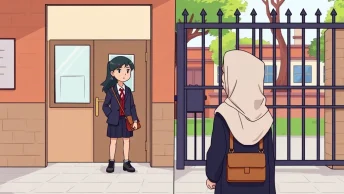Several High Courts have granted prisoners the right to procreate with their spouse, including it within the ambit of “personal liberty.” The article analyzes such jurisprudence as detrimental to the rights of prisoners’ spouses due to the lack of clarity on its nature and scope. It argues on the manifestly arbitrary nature of such expansion, advocating a more careful approach for courts by considering other stakeholders.
Introduction
The Supreme Court’s jurisprudence has been replete with unprincipled developments in the context of Article 21, reading certain rights as ‘facets’ of personal liberty. As of recently, several High Courts (‘HCs’) have also jumped on this bandwagon. To elucidate, the Delhi HC in Kundan Singh v. State (‘Kundan Singh’), upheld a prisoner’s right to procreate (‘RTP’) as a part of right to life, on account of his and his wife’s advanced age. While building on the work of several HCs before it, the Court sought to effectuate the natural tendency of giving birth to children, while equating the prisoner’s right to a free man’s to uphold their faith in the “courts of law of Bharat”.
This blog argues that despite granting prisoners the RTP is a step forward, the lack of clear delineation of the same can adversely impact our rights framework. Additionally, such effects render any positives void to such extent that the exercise is rendered arbitrary. To illustrate the magnitude of consequences, this blog focuses only on the right’s effects on the wives of male prisoners, who face the major brunt of such constitutionalism. The article delves into several aspects of the RTP, indicating lack of clarity on the matter and highlighting its role in reinforcing patriarchal notions. Ultimately, testing it against the bedrock of arbitrariness, the right’s formulation in the present manner is argued to be unconstitutional.
I. Background
The expansion of Article 21 to include RTP for prisoners has been the work of several HCs, to which Kundan Singh has been the latest development. The right was initially defined in Jasvir Singh v. State of Punjab, which sought to effectuate it in light of the prisoner and his wife’s advanced age coupled with long incarceration. The doctrinal premises were situated in reformative jurisprudence, and indicated an attempt to equate prisoners’ rights with a free man. The Court also provided suggestive recommendations to imbue a reformative approach towards prisoner rights. This essence was what lead to several other HCs jump the bandwagon under similar cases before them, however dealing with them on a case-by-case basis instead of establishing a common ground of their own.
The existing cases have mostly dealt with joint petitions of the couple or applications made by the wife on her husband’s behalf. However, the courts have only sought to establish this right based on the doctrinal premises established above, restricting their frame of reference to the prisoner. Though the HC in Nand Lal v. State of Rajasthan differed from this by establishing the spouse’s RTP as well, the article argues that there is a lack of tangible consideration provided to her, indicating the myopic perspective of our HCs. Additionally, the detriment to not considering the spouse’s rights while granting the RTP gets established in the manner prescribed below.
II. Examining Spousal Consent in Right to Procreate
Under established criminal law jurisprudence, since matters of sexual promiscuity include two individuals, a woman’s consent in situations must be voluntary and unequivocal, indicating that they cannot be implied/inferred based on stray conduct. Similarly, the prisoner’s RTP directly concerns two individuals- the prisoner and his spouse. Thus, the Court should confirm whether the spouse is voluntarily and unambiguously consenting to procreate before granting such right. However, the Court in Kundan Singh focused only on the prisoner and his desire to procreate while establishing the right, without answering the above question over the spouse.. In Nand Lal v. State of Rajasthan (‘Nand Lal’), though the Court delved into the wife’s RTP alongside the prisoner’s, describing it as being imbibed in Indian culture , when granting such right it overlooked the presence of such consent.
Sexual intercourse and procreation raise several integral questions over a woman’s reproductive and physical autonomy. If the prisoner wishes to exercise the RTP, how would the court assess if the prisoner’s partner also consents to such exercise? In both cases mentioned above, the spouse had preferred applications before different authorities, praying for the grant of such right. Thus, either the courts failed to consider this issue, or felt that their consent was implied by the conduct of preferring such application. But based on the theory of consent as established above, can filing of such application be sufficiently considered as providing consent to procreate with the prisoner?
Several studies decode India’ patriarchal landscape, where a woman’s sexual and reproductive autonomy rests in her husband/family’s hands. Furthermore, household diktats of preserving lineage and gaining motherhood continue to subdue women who do not wish to abide by them. Such factors might coerce women to procreate, or here, to file said applications to fulfill the family’s wishes. Kundan Singh dedicates several paragraphs to protecting a prisoner’s fundamental rights without discussing the impact of such rights on the spouse. But when the Court in Nand Lal tries to liberate the woman’s desires of motherhood by granting procreation, it willfully ignores that such desires could be those of the family running counter to the woman’s choice.
Furthermore, by suggesting how womanhood gets magnified on becoming a mother, like several other judgments it provides ammunition to patriarchal notions under the veil of women rights. Since no recourse is also provided to the woman to subsequently refuse the exercise of right of procreate based on lack of consent, the HCs allow a power imbalance to operate between the spouse and the prisoner. Yet, the question arising is: Can our Constitutional Courts like HCs and SC allow its operation, without providing the spouse a right to subsequently reject the RTP post its approval? Based on the limitations of existing jurisprudence and the lack of foresight to consider such issues, the answer to the above question seems to be in the affirmative.
Additionally, in Nand Lal no requirement was provided for medically assisted procreation. Thus, if courts grant the right without confirming the woman’s consent, or the circumstances in which she gave it, the prisoner could engage in forceful sexual intercourse, or marital rape, despite being on parole. Though such act is yet to be decriminalized, judges have previously expressed decisions on its criminal nature., Such decisions would be negated if courts, without confirming consent, allow such situations to arise. Providing blanket rights to prisoners without considering such direct effects would not only be arbitrary, but translates to the judiciary missing the wood for the trees.
III. Limitation to Lineage: The Injustice of Right to Procreate Restrictions
Assuming now that the spouse unequivocally consents to procreating, the RTP continues to create adverse effects for her. This is caused by the unviability of its nature, and the restrictions laid down… Kundan Singh holds that the right is not absolute and varies between prisoners. For instance, it considers a pre-existing child of the inmate as a reason to not grant the right. This is because the right’s purpose is to fulfill the notion of extending lineage, but if a child was born before, then such a notion is considered fulfilled, and inevitably, the right is not granted. Several concerns arise out of such a restriction which remain unanswered.
Firstly, there is no reasonable basis for arriving at the one child restriction for the right, as the notion to extend lineage may persist even after the birth of one child. Since the RTP is said to fall within “personal liberty” under Article 21, any constitutional restrictions on it must be just, fair and reasonable to meet the standard of due process.
Secondly, the restriction’s fairness is contentious when considering the spouse’s right to extend her lineage. The Court in Nand Lal holds that the prisoner’s RTP/extend lineage is parallel to the spouse’s right on the same. Reading it concurrently with Kundan Singh implies that the one child restriction also applies against her right. Thus, such restriction to be constitutional, should be reasonable not only against the inmate, as mentioned above, but also against the woman, especially considering that she’s not imprisoned. However, Kundan Singh narrowly focuses on the prisoner despite the undue restriction on the spouse’s right as well. The two individuals are treated similarly despite being on different footings.
Thirdly, the Court also fails to account for second wives of such inmates, who are step mothers to the inmate’s children. To elucidate, let us assume a situation wherein before the imprisonment, a man procreates a child and subsequently divorces his wife to marry a second woman who becomes the step mother to such child. If the man gets imprisoned, and the step mother files an application on grounds of RTP, would such right be granted? The one-child restriction makes no distinction between the child being biological/non-biological progeny to the man or the spouse, and can be considered to be applied to both. In either situation, the couple’s lineage is considered to “be extended”. Hence, since she has a non-biological stepson, by y virtue of her husband having “extended her lineage”, any RTP with the second wife could be denied, depriving her of the right to her own biological progeny. This affects the spouse’s desire to have biological progeny of her own, which is a right described in Nand Lal as an innate to an individual. Step mothers are then disproportionately impacted compared to the prisoner, as the prisoner gets right to a biological progeny while the second wife does not.
Click here for Part II of the series.
Rishit Soni is an incoming third-year student at the West Bengal National University of Juridical Sciences, Kolkata. His interest lies in the fields of constitutional and criminal law.
Ed Note: This article has been edited by Jeetendra Vishwakarma and published by Abhishek Sanjay from the Student Editorial Board.







6pcppr
kid6bo
e5r133
to8ozp